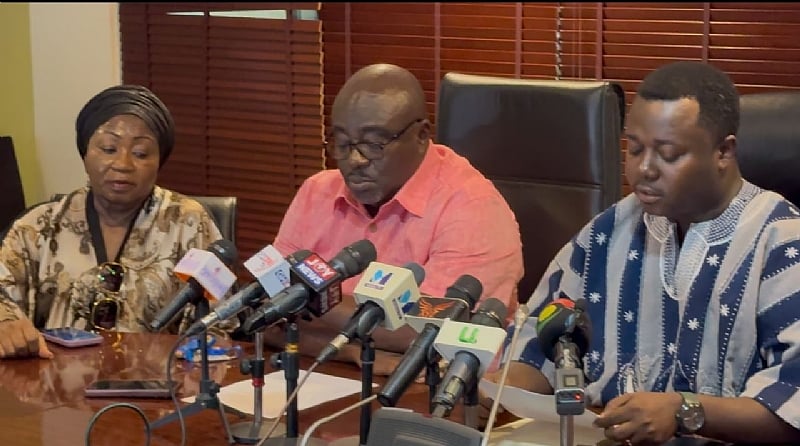The New Patriotic Party (NPP) Minority Caucus in Ghana’s Parliament has expressed grave concern over the escalating violence in Bawku, a town in the Upper East Region. The persistent conflict, marked by shootings, arson, and home invasions, has resulted in tragic loss of life, displacement of residents, and the disruption of essential services. The Minority Caucus, through Reverend John Ntim Fordjour, the Ranking Member on the Defence and Interior Committee of Parliament, has called for immediate and decisive government intervention to address the deteriorating security situation and restore peace to the troubled town. They emphasize the importance of a sustainable solution that addresses the root causes of the conflict and ensures the safety and well-being of Bawku’s residents.
The Minority Caucus highlights the devastating impact of the ongoing violence on Bawku’s communities. Schools have been forced to close, disrupting education and jeopardizing the future of the town’s children. Critical services, such as healthcare, have been severely affected as medical professionals and other essential workers refuse postings to Bawku due to safety concerns. Businesses have fled the area, crippling the local economy and further exacerbating the hardship faced by residents. The Minority Caucus stresses that the instability in Bawku, a strategically located border town, poses a significant national and regional security risk, requiring a more coordinated and effective response from the government.
Rev. Ntim Fordjour emphasized the urgent need for a comprehensive approach to peace-building in Bawku. He cited security experts, including Dr. Victor Doke of the Kofi Annan International Peacekeeping Training Centre, who recommend involving neutral state institutions and civil society organizations in the process. This approach aims to rebuild trust between the people of Bawku and the security agencies, a crucial element in achieving lasting peace. The Minority Caucus believes that restoring trust is essential for fostering cooperation and ensuring that security measures are perceived as legitimate and impartial.
The Minority Caucus further called for neutral bodies, such as the National Peace Council, to play a more active role in facilitating dialogue and reconciliation between the warring factions. They believe that these organizations, with their expertise in conflict resolution and mediation, can help bridge the divides and foster a spirit of coexistence among the different groups in Bawku. The Minority Caucus also emphasized the importance of addressing the underlying causes of the conflict, which are believed to be rooted in chieftaincy disputes and ethnic tensions.
The Minority Caucus strongly criticized the government’s handling of the situation, accusing them of failing to demonstrate sufficient urgency and decisiveness in addressing the crisis. They argue that the government’s response has been inadequate and has failed to prevent the escalation of violence. The Caucus urged the government to prioritize the safety and well-being of Bawku’s residents and to implement effective measures to curb the proliferation of arms in the area. They also called for increased security deployment to protect civilians and prevent further attacks.
The situation in Bawku demands immediate and sustained attention from the government and all relevant stakeholders. The ongoing violence poses a serious threat to the lives and livelihoods of the town’s residents, disrupts essential services, and undermines the stability of the region. The Minority Caucus’s call for urgent action, including a comprehensive peace-building process involving neutral actors and addressing the root causes of the conflict, offers a potential roadmap for restoring peace and security to Bawku. The government must take decisive steps to implement these recommendations and bring an end to the suffering of the people of Bawku.














